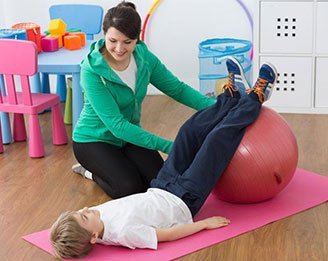Pediatric Physiotherapy: Essential Techniques for Child Development and Recovery

Pediatric physiotherapy focuses on the assessment and treatment of infants, children, and adolescents with physical challenges. This specialized care aims to enhance movement, improve functional abilities, and facilitate participation in daily activities. By utilizing tailored therapeutic exercises and interventions, pediatric physiotherapists help young patients develop strength, coordination, and motor skills.
Parents often seek pediatric physio for various reasons, including developmental delays, sports injuries, or conditions like cerebral palsy. The process involves a comprehensive evaluation to create individualized treatment plans that target each child’s specific needs. This approach not only supports physical growth but also boosts confidence and overall well-being.
Engaging in pediatric physiotherapy can lead to significant improvements in a child's quality of life. Families may notice enhanced mobility, reduced pain, and increased independence as a result of consistent therapy. Understanding the role of pediatric physiotherapy can empower parents to make informed decisions about their child's health journey.
Essentials of Pediatric Physiotherapy
Pediatric physiotherapy focuses on improving the movement and function of children through targeted interventions. This section emphasizes developmental milestones, early intervention strategies, and assessment techniques critical for effective treatment.
Developmental Milestones and Physical Therapy Goals
Developmental milestones guide the assessment of a child's physical capabilities. These milestones include motor skills, such as crawling, walking, and running, which are crucial for planning appropriate therapy goals.
Specific physical therapy goals may include improving balance, enhancing coordination, and increasing strength. Therapists customize objectives based on individual needs, addressing concerns like delayed development or specific conditions. Consistent tracking of milestones helps in adjusting therapy as the child progresses.
Early Intervention Strategies
Early intervention is crucial for maximizing developmental potential. It involves identifying children at risk for delays and providing support as soon as possible.
Key strategies include play-based therapy, which encourages movement through fun activities. Parent involvement is essential in these strategies, allowing caregivers to reinforce exercises at home. Therapists may also use adaptive equipment to facilitate movement. Early intervention can significantly impact long-term outcomes by addressing issues like cerebral palsy, developmental coordination disorder, or congenital conditions.
Assessment Techniques for Pediatric Patients
Assessment in pediatric physio employs various techniques to evaluate a child's physical capabilities. Professionals often begin with a comprehensive medical history and observations of the child's movements in different environments.
Standardized tests, such as the Gross Motor Function Measure (GMFM), provide quantitative data on motor skills. Functional Movement Assessments help in identifying specific weaknesses or limitations. Therapists may also engage children in activities to gauge their balance, strength, and flexibility. This multifaceted assessment approach ensures tailored interventions that meet individual needs accurately.
Practical Approaches in Pediatric Physio
Effective pediatric physiotherapy employs tailored techniques to address children's unique needs. Emphasis is placed on engaging therapeutic exercises, fostering family involvement, and adapting methods for various disabilities.
Therapeutic Exercises for Children
Therapeutic exercises in pediatric physiotherapy focus on enhancing physical abilities, improving coordination, and promoting mobility. These exercises can include strength training, balance activities, and flexibility routines tailored to each child's developmental stage.
For example, simple resistance exercises using light weights or resistance bands can build strength. Balance activities, such as standing on one leg or using a balance beam, promote core stability. Play-based exercises engage children in fun ways, making therapy enjoyable while achieving physical goals.
Frequent assessments ensure the exercises remain appropriate as the child progresses. Personalization is essential, as each child may respond differently to various activities.
Family Education and Involvement
Family education plays a vital role in pediatric physiotherapy outcomes. Involving family members fosters a supportive environment for the child's rehabilitation.
Therapists can provide families with information about injury prevention, exercise routines, and effective methods to encourage progress at home. Regular sessions that include family members can enhance motivation and commitment to therapy.
Families may also learn to incorporate therapeutic activities into daily routines. This practice reinforces skills and promotes a healthier lifestyle. Communication between therapists and families is crucial for sharing updates on progress and addressing challenges.
Adapting Therapy for Different Disabilities
Adapting therapy techniques for individual disabilities is fundamental in pediatric physiotherapy. Each disability presents unique challenges and requires specific approaches.
For children with cerebral palsy, for instance, therapists may focus on improving muscle control and coordination through task-specific exercises. For autism spectrum disorder, sensory integration techniques can be beneficial to enhance motor skills while accommodating sensory sensitivities.
Individualized assessments guide the selection of appropriate interventions. Collaborative goal-setting with the child's family ensures that therapy aligns with the child’s interests and aspirations. Adjustments throughout therapy allow for Ongoing improvements in treatment efficacy.
What's Your Reaction?

















